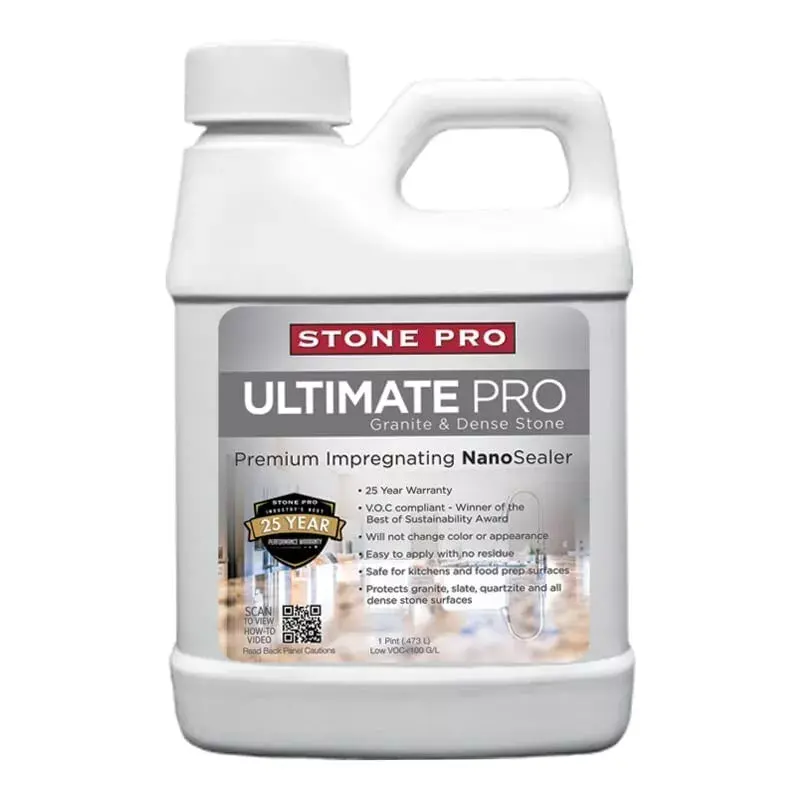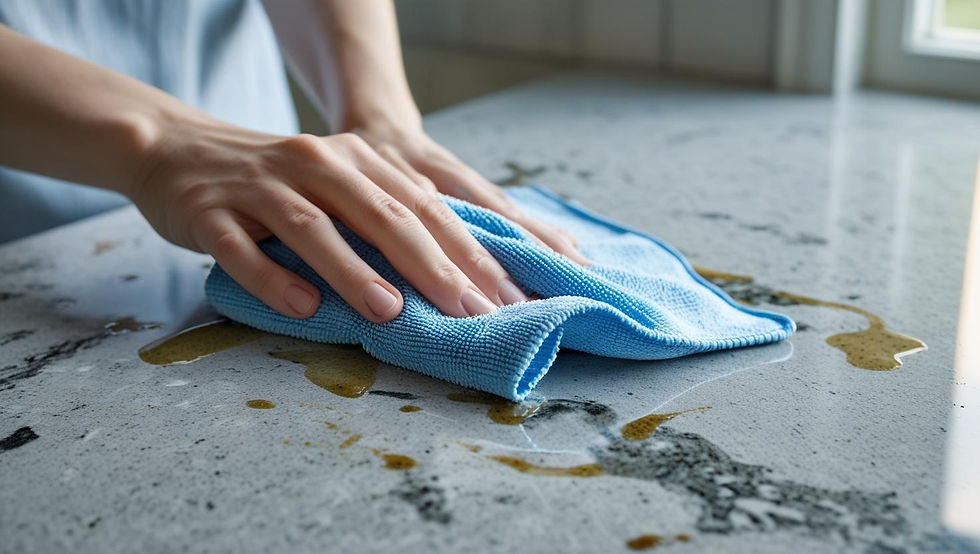Essential Guide to Sealing Stone Countertops for Longevity and Beauty
- Stone Dimensions

- Aug 20, 2025
- 3 min read
Maintaining the beauty and durability of your stone countertops is crucial for any homeowner. Stone surfaces like granite, marble, and quartzite can add elegance and value to your home, but they require proper care to stay in top condition. Many homeowners overlook the importance of sealing these surfaces, which can lead to stains and damage over time. This guide will help you understand how to seal various types of stone countertops effectively, ensuring they remain a stunning feature in your home.
Understanding the Importance of Sealing
Sealing your stone countertops is essential for several reasons. It protects against stains, spills, and wear from everyday use. Stone surfaces, while strong, can be porous. This means liquids and oils can seep in, causing discoloration and structural issues. A good sealer forms a protective barrier, repelling these substances and making it easier to keep your countertops clean.
Sealing also highlights the natural beauty of the stone, enhancing its colors and patterns. Over time, unsealed surfaces may lose their luster. Regular sealing not only retains your stone’s aesthetic appeal but also provides added protection against wear and tear.
Granite, Quartzite, Soapstone & Dolomite
For homeowners with granite, quartzite, soapstone, or dolomite countertops, it is highly recommended to use Stone Pro Ultimate Pro with Nano Sealer. This product is formulated specifically for these types of stones.

Frequency of Sealing
These stones should be sealed once a year to maintain their protective layer.
Tips for Maintenance
To ensure these stones remain vibrant and resistant to stains, perform regular checks for signs of wear. Look for dullness or water absorption, which can indicate the need for a new layer of sealer. For example, if water droplets no longer bead up on the surface, it’s time to reapply the sealant.

Marble & Limestone/Sandstone
If your countertops are made of marble or limestone/sandstone, you should consider using Stone Pro Porous Pro with Nano Sealer for optimal protection.

Frequency of Sealing
These softer stones require sealing twice a year.
Tips for Maintenance
Marble and limestone are more porous than granite and quartzite, making them vulnerable to stains. To maintain their appearance, sealing should be performed more frequently. Always clean spills quickly and avoid acidic cleaners that can etch surfaces. Regular cleanup keeps these countertops looking new. For instance, using a damp cloth to wipe down surfaces after use can prevent build-up that leads to stains.

Quartz & Porcelain
If you are lucky enough to have quartz or porcelain countertops, the great news is that sealing is not necessary!
Frequency of Sealing
These materials do not require sealing at all.
Tips for Maintenance
Quartz and porcelain are engineered and non-porous, making them resistant to stains. Regular cleaning with mild soap and water will keep them in excellent condition. For example, a quick wipe with a cloth after meal prep can keep your countertops looking their best without much effort.
The Rule of Thumb for Sealing
Here's a quick reference guide to help you determine the best care for your countertops:
Darker stones (like granite and quartzite) typically need sealing once a year.
Lighter stones (such as marble and limestone) are more porous and should be sealed at least twice a year.
Some stones, including certain quartzites, may require even more frequent sealing.
If you’re uncertain about your specific stone type, consult a professional or feel free to ask questions in the comments!
Final Thoughts on Countertop Care
Sealing your stone countertops plays a vital role in preserving their beauty and increasing their longevity. Use the right sealing products, such as Stone Pro Ultimate Pro for granite and quartzite or Stone Pro Porous Pro for marble and limestone, to shield your surfaces from everyday damage.
Even though quartz and porcelain don’t require sealing, it is still crucial to clean them regularly. Proper maintenance ensures that your stone countertops remain a stunning and functional centerpiece in your home for many years.
If you know someone with stone countertops, share this guide with them so they can also enjoy the brilliance of their surfaces!

.png)








Comments